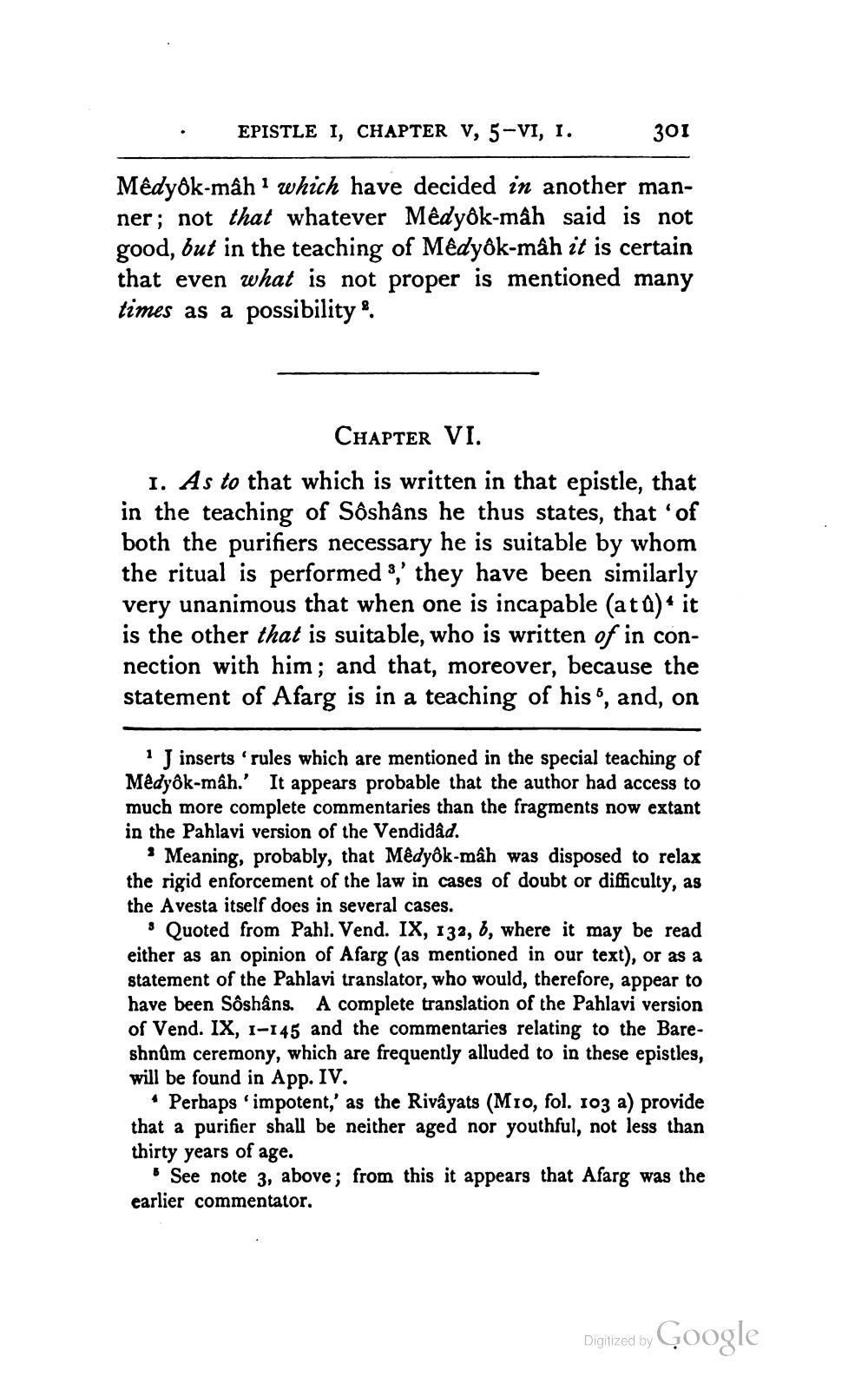________________
EPISTLE I, CHAPTER V, 5-VI, I.
301
Medyok-mâh? which have decided in another manner; not that whatever Medyôk-mah said is not good, but in the teaching of Medyok-mâh it is certain that even what is not proper is mentioned many times as a possibility
CHAPTER VI. 1. As to that which is written in that epistle, that in the teaching of Sôshậns he thus states, that'of both the purifiers necessary he is suitable by whom the ritual is performed 8,' they have been similarly very unanimous that when one is incapable (ata)* it is the other that is suitable, who is written of in connection with him; and that, moreover, because the statement of Afarg is in a teaching of his , and, on
* J inserts 'rules which are mentioned in the special teaching of Medyok-mah.' It appears probable that the author had access to much more complete commentaries than the fragments now extant in the Pahlavi version of the Vendidad.
Meaning, probably, that Médyôk-mâh was disposed to relax the rigid enforcement of the law in cases of doubt or difficulty, as the Avesta itself does in several cases.
• Quoted from Pahl. Vend. IX, 132, 6, where it may be read either as an opinion of Afarg (as mentioned in our text), or as a statement of the Pahlavi translator, who would, therefore, appear to have been Sôshâns. A complete translation of the Pahlavi version of Vend. IX, 1-145 and the commentaries relating to the Bareshnum ceremony, which are frequently alluded to in these epistles, will be found in App. IV.
• Perhaps'impotent,' as the Rivâyats (M1o, fol. 103 a) provide that a purifier shall be neither aged nor youthful, not less than thirty years of age.
See note 3, above; from this it appears that Afarg was the earlier commentator.
Digized by Google




